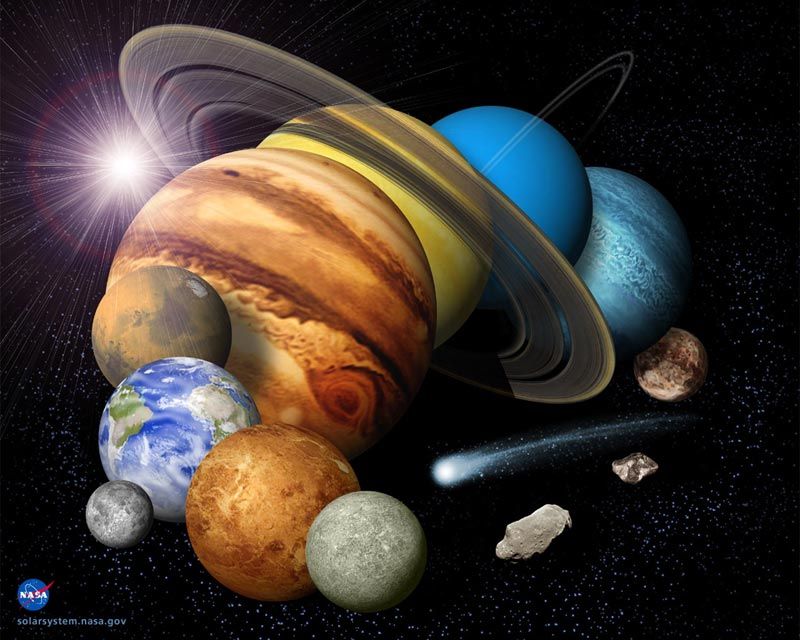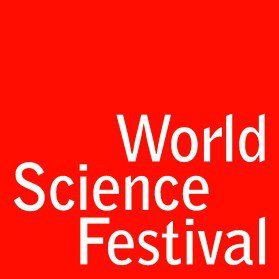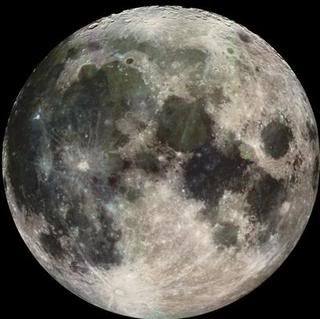PODCAST: Professor Brian Cox and the ‘Wonders of the Solar System’
Aug0

Our solar system, a true wonder to behold! Image © NASA, all rights reserved.
“I think we’re living through the greatest age of discovery our civilization has ever known,” declares British physics superstar Professor Brian Cox as a preamble for each episode of The Science Channel’s BBC import Wonders of the Solar System. Episode by episode, Dr. Cox deconstructs our wondrous Universe one focus at a time—the Sun, the Big Bang, life on other planets. But he does something even more important. He infuses his own obvious enthusiasm and passion for his field in each experiment and factoid. As a viewer, you can’t helped but be absorbed in the intergalactic vortex of knowledge. The timing of this mini-series and emergence of Cox’s exuberant personality could not be better. Funding for NASA missions has been cut dramatically, with an ongoing re-evaluation the role space exploration should play in the national budget and science ambition. American viewers should get used to Cox as a modern-day Carl Sagan, because his star is rising fast. ScriptPhD.com was extraordinarily fortunate to sit down with Dr. Cox in Los Angeles for a one-on-one podcast about the show, the current state of space exploration, and what is possible to achieve experimentally if we only try. My conversation with the inspirational, eloquent and brilliant Brian Cox, along with our review of Wonders of the Universe, under the “continue reading” cut.
Comic-Con 2010: Day 1
Jul8

Greetings from sunny San Diego, everyone! ScriptPhD.com is in the absolute epicenter of sci-fi, comics and the illustrative arts: Comic-Con 2010. Armed with a press pass, our wonderful correspondent Brian Stempien of Lefty Films, and an industrial-sized vat of Purell, we are proud to bring you four-day coverage that spans the nexus of sci-fi, graphic arts, design, technology, film, television, and of course, the forum that started it all, comics. Day 1 coverage includes an array of panels covering the origins that drive an artist’s imagination, the future of cultural arts in a digital age, the future of space exploration with Iron Man’s Stark Industries as a model, good sci-fi, bad sci-fi, sci-fi that will change your life, and a conversation with two leading visionaries of the sci-fi genre, J.J. Abrams and Joss Whedon. ScriptPhD.com also got to chat with the stars and producers of our favorite forensics show, Dexter. Plus, we have a little secret teaser interview with a certain MythBusters star that we’ve been teasing for a good while now! As we always do at Comic-Con, we pick our Costume of the Day as part of our compete Day 1 coverage, under the “continue reading” cut.
World Science Festival: Day 3
Jun0

The 2010 World Science Festival Runs in New York City from June 2-6.
ScriptPhD.com’s coverage of the World Science Festival in New York City continues towards the physics and mathematics realm. Day 3 events on Friday included an intimate discussion about astrophysics and the new James Webb Telescope, set to replace Hubble in June of 2014, a panel about hearing and visualizing gravity with Albert Einstein’s modern successors, and a panel about the very limits of our understanding of science—the line between what we do and don’t (or can’t) know—and its bridge to culture and art. Contributions to our coverage were done by New York City science writers Jessica Stuart and Emily Elert. Synopses and pictures of three extraordinary panels with the premier scientists of our time under the “continue reading” cut.
REVIEW: Hubble IMAX—Editor’s Selection
Mar3

Hubble 3D IMAX poster ©2010 Warner Brothers Pictures, all rights reserved.
The Hubble Space Telescope is the world’s first observatory that actually orbits—you guessed it—through outer space. Over the last decade, Hubble has captured some of the deepest and most detailed images of our universe. All those recent headlines about exoplanets: those discoveries come from Hubble. Scientists viewing pictures of light projected from stars over 13 billion years ago (almost at the origin of the universe): that’s Hubble, too. Hubble 3D documents the 2009 mission by the crew of the Shuttle Atlantis to make vital repairs to one of mankind’s most expensive, and significant, science projects. There would be no second chances. If the mission had failed, Hubble would be just another piece of junk orbiting above the earth, like my Direct TV satellite and Elvis’s body. The tension is real, the suspense extraordinary, and the imagery? Out of this world. And fortunately for terrestrial audiences, the entire mission was captured by the crew and director Toni Myers on some of the most breathtaking, brave film ever recorded. We are proud to make Hubble 3D an official ScriptPhD.com Editor’s Selection.
Hi-Fi Sci-Fi: To the Moon, Alice! To the Moon!
Jul1

What is it with Hollywood releasing movies that coincide with NASA missions to outer space? Remember when Star Trek came out during the Hubble Telescope repair mission [read ScriptPhD coverage]? Moon, a thoughtful new science fiction indie feature from Liberty Films and Sony Pictures, featuring a near-solo bravura performance by Sam Rockwell, comes on the auspicious heels of NASA’s Lunar Reconnaisance Orbiter mission to remap and fortify our knowledge of Earth’s Moon and surrounding solar system that got off to a spectacular start on June 18th. ScriptPhD.com reviews Moon and discusses the LRO mission, along with some of the first days-old high-resolution topographical beamed moon images and their implications for further lunar missions. To read the article, click “continue reading”.

















